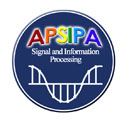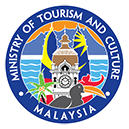Educational Forum
APSIPA 2017 Educational Forum

“Online Learning in the Asia Pacific Region”
Organizer and Chair: Professor Sanjit K Mitra, University of California, Santa Barbara and University of Southern California, Los Angeles.
Speakers:
- “45 Years of Distance and Online Education: Best Practices and Trends”

Dr. Binh Tran, University of Southern California, Los Angeles, California
Abstract
The University of Southern California’s longest running distance education and online program share their best practices with online learning and online learning trends. Examples of hybrid, fully online, and partnership programs will be presented with considerations for administration, faculty, and students. Online services range from master’s programs, noncredit programs, global partnerships, research centers, and outreach programs.
- “Deep Learning Applications in Education”

Ms. Betty Zhou, Miao Academy, Singapore
Abstract
How can educators and educational content providers make learning content more accessible and student-centric in an increasingly digitized world? Miao Academy will demonstrate how to make use of cutting edge technologies to help students and educators navigate the flood of digital content to instantly access the most relevant curated educational resources.
- “Applications of MOOCs for On-Campus University Students”

Mr. Adam Brimo, Openlearning, Sydney, Australia
Abstract
While many universities around the world are experimenting with MOOCs, Malaysia’s public and private universities have adopted MOOCs on a large scale to increase access and quality in the university system. OpenLearning has worked closely with universities to integrate MOOCs into the on-campus learning and teaching ecosystem, reaching hundreds of thousands of students nationwide.
- “Online Methods in Education: The Revolution is Here”

Prof. Roderick Wayland Bates, Nanyang Technological University, Singapore
Abstract
The mode of teaching in Universities has not changed greatly for a century or more. The technology associated with the internet means that we can now make major changes. But will these changes really lead to improvement in student learning?
The Division of Chemistry and Biological Chemistry at Nanyang Technological University (NTU) was established in 2005. Starting with a clean slate, an entire curriculum was developed including intensive synthetic chemistry labs. Extensive e-learning resources were put in place and have continued to be developed, and a strategy to ensure student involvement was designed. We now have a blend of written materials, images, videos and quizzes deployed in online sequences in order to ensure that students are prepared for practical work, in terms of both what to do and how to do it safely! This has evolved over the years to ensure that students come to lab aware of what they will be doing, so that they use the lab time, and our TA’s time, effectively.
NTU has now launched a major initiative on “Technology Enabled Learning“ (TEL). We are building on our earlier experience to use technology in all courses. We are also offering MOOCs, and working to employ those MOOCs both externally and internally. These initiatives are opening up opportunities to change the way students learn. How can we take advantage of technology to take a great leap forward in the quality of university education, or will it be much ado about nothing?
- “National Program on Technology Enhanced Learning (NPTEL): A National Exercise in E. Learning in India”

Prof. Mrityunjoy Chakraborty, Indian Institute of Technology, Kharagpur, India
Abstract
The NPTEL is an ambitious project of the Government of India for providing through the Internet e-learning materials and video courses in Engineering, Sciences, Technology, Management and Humanities. Eight Indian Institutes of Technology: Bombay, Delhi, Kharagpur, Kanpur, Madras (national coordinator), Roorkee, Guwahati and Patna, and the Indian Institute of Science, Bangalore. are contributing to the program. At present about 1200+ video courses and web-based courses of the program are freely available in the Internet. This talk introduces the NPTEL in a nutshell, starting from its genesis, to its course structures, how to access the NPTEL video and web courses, impact of the program and other issues. Some examples of video and web based lectures are presented to provide an overview of the program. The talk ends with the current status and salient features of this program.
- “Sharing Education Movement in Taiwan”

Prof. Wei-I Lee, National Chiao Tung University, Taiwan
Abstract
In 2007, National Chiao Tung University (NCTU) launched the first OpenCourseWare (OCW) website in the Chinese-speaking region. Over the past ten years, more than 200 open courses with full videos have been released by NCTU, attracting more than 400 thousands unique users a year. In 2009, Taiwan Open Course Consortium (TOCC) was established. Nowadays 28 universities, i.e. more than 15% of the Universities in Taiwan, have joined TOCC and contributing more than 1,500 open courses, with roughly 500 thousands monthly viewers of these courses.
After the explosive growth of Massive Open Online Courses (MOOC) in the US in 2012, NCTU launched the first MOOC platform, ewant, in Taiwan in Oct. 2013 (www.ewant.org). Until July 2017, ewant has officially collaborated with 86 top universities from Taiwan and Mainland China and offered more than 500 courses from these universities, making it the most important MOOC platform in Taiwan. In 2014, NCTU and National Taiwan Open University jointly established a national authenticated exam system for all the MOOCs on ewant. Using such a system, ewant is able to hold authenticated off-line tests for any MOOC at 13 different test sites around Taiwan, making Taiwan the first country which can offer such a service to MOOCs on a nation-wide scale. In 2015, NCTU successfully using ewant as a platform to promote credit recognition of on-line courses among different universities. In 2017, based on the experience of utilizing moodle as the core of ewant, NCTU invited more than ten universities to collaborate on developing a customized moodle learning management system (LMS) for campus use.
This presentation will talk about how Taiwan gradually develops its Sharing Education Taiwan (SET) movement from sharing courseware to sharing courses, sharing credit, and then to sharing platforms. How the SET movement helps to effectively improve the return of investment in higher education will also be discussed.

















